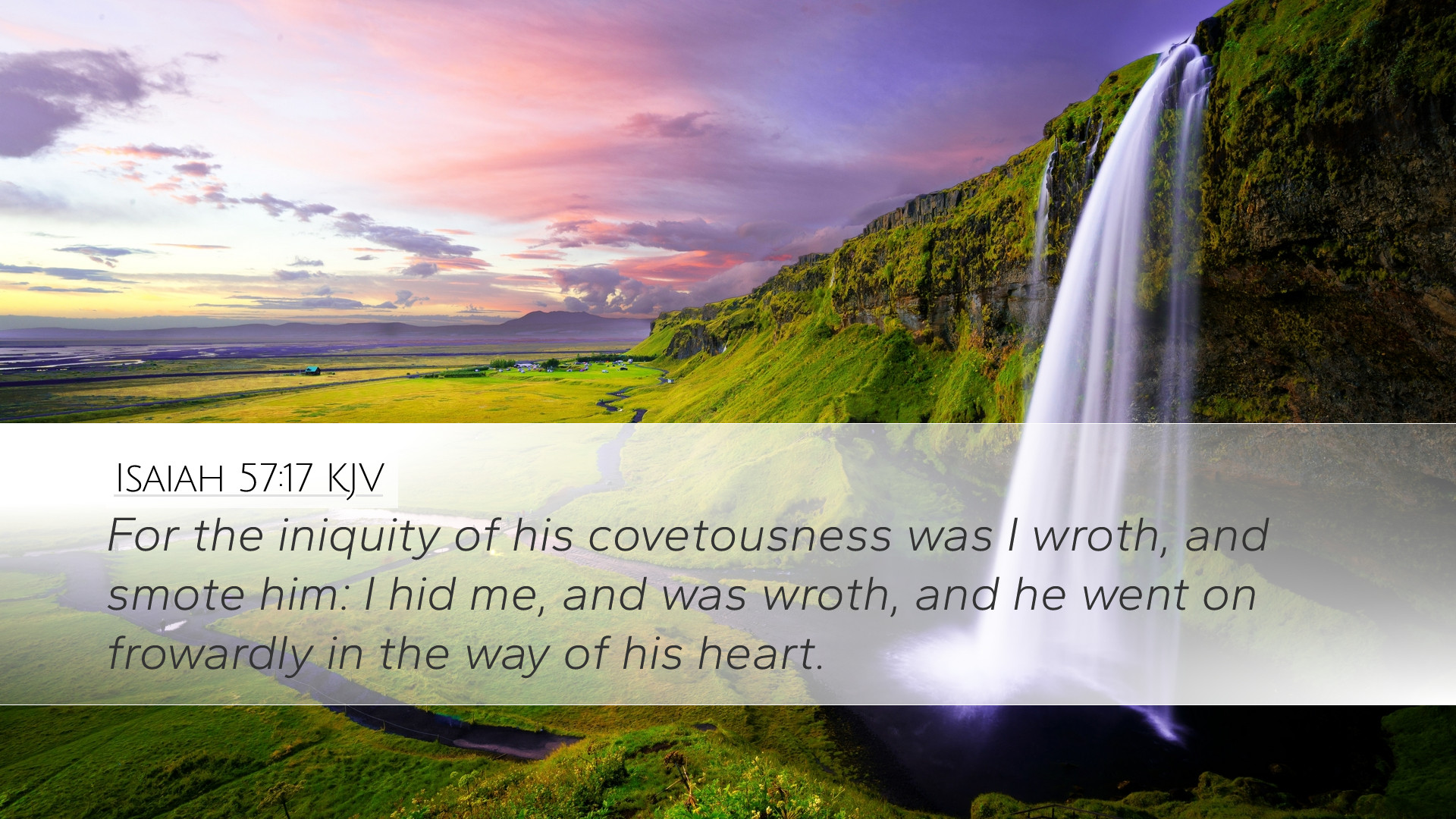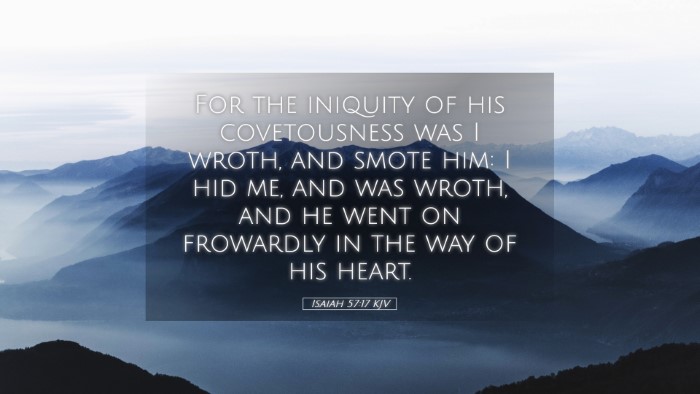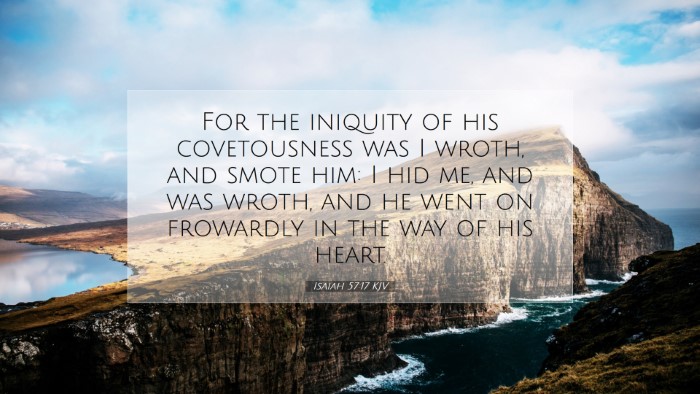Commentary on Isaiah 57:17
Isaiah 57:17 states: "For the iniquity of his covetousness was I angry, and smote him: I hid me, and was wroth, and he went on frowardly in the way of his heart." This verse encapsulates profound theological concepts regarding divine anger, human iniquity, and the nature of rebelliousness against God's will.
Introduction
This commentary draws from notable public domain resources, seeking to delve into the exegetical and theological implications present in this verse. Insights will be sourced from well-regarded scholars such as Matthew Henry, Albert Barnes, and Adam Clarke. It is essential for pastors, students, theologians, and scholars to grasp the implications of divine displeasure and human obstinacy as presented in Isaiah 57:17.
Contextual Background
Understanding the historical and literary context of Isaiah is crucial. The book of Isaiah presents a dual message: the impending judgment of Israel and the hope of redemption. Chapter 57 addresses the spiritual condition of a people who have turned away from God, resulting in serious consequences. Isaiah highlights the disconnect between human behavior and divine expectation.
Historical Setting
In the 8th century BCE, when Isaiah was prophesying, Judah was marked by spiritual decay, idolatry, and ethical corruption. This context underscores the gravity of the iniquities that God laments in this verse.
Exegesis of Isaiah 57:17
Divine Anger
Matthew Henry emphasizes the nature of God's anger as not arbitrary, but as a reaction to the iniquity of His people. The term "iniquity of his covetousness" reveals that specific sins—particularly greed and the desire for more—can provoke God's displeasure.
Divine Discipline
Henry also points out that God's anger led to divine punishment ("and smote him"). This indicates that God's responses are purposeful and intended for correction rather than mere wrath. This notion aligns with the broader biblical principle that the Lord disciplines those He loves (Proverbs 3:12; Hebrews 12:6).
Divine Hiding
Continuing with the text, the phrase "I hid me" suggests a withdrawing of God's Presence. Barnes notes that God's absence is significant—implying that the people, ensnared in their sin, can no longer perceive His guiding hand. This leads to spiritual desolation.
Human Rebellion
Adam Clarke highlights the "frowardly" part, which conveys a stubborn refusal to acknowledge one's sin or to turn back to God. This condition illustrates a fundamental human propensity to resist divine correction. Clarke provides insights into how sin hardens the heart, making individuals increasingly resistant to God's guidance.
Theological Implications
Understanding Sin and Grace
This verse presents a succinct illustration of the tension between human sin and divine grace. While God's anger is a response to sin, Clarke emphasizes that it sets the stage for experiencing God's grace and mercy. The call to repentance follows acknowledgment of sin.
The Nature of God
Isaiah 57:17 reveals key attributes of God: His justice, righteousness, and longsuffering nature. These aspects illustrate that while God is angered by sin, He also patiently awaits repentance, offering the possibility of restoration.
Practical Applications
For Pastors and Theologians
- Encouraging congregations to assess personal and corporate sin, particularly covetousness and selfishness.
- Reminding believers of God's discipline as an expression of His love.
- Highlighting the necessity of seeking God’s presence through repentance and reliance on His grace.
For Students
- Encouraging deep study into the historical context of Israel’s rebellion, drawing lessons applicable to contemporary faith communities.
- Exploring the concepts of sin, divine discipline, and grace through research and reflection on Scripture.
- Engaging with the text critically to understand the nature of God in relation to humanity.
For Scholars
- Encouraging comprehensive theological discussions regarding the interplay of divine sovereignty and human free will.
- Exploring the literary features of prophecy and their impact on theological interpretations.
- Analyzing the prophetic literature's relevance in articulating current ethical and moral challenges.
Conclusion
In conclusion, Isaiah 57:17 provides a rich basis for understanding the dynamics of human sin and God's response. The insights garnered from the commentaries of Matthew Henry, Albert Barnes, and Adam Clarke illuminate the essential truths of divine anger, the prophetic call to repentance, and the overarching theme of grace. As believers engage with this profound text, they are urged toward a deeper understanding of God’s character and their own spiritual condition, empowering them to live in a manner that reflects His righteousness.


